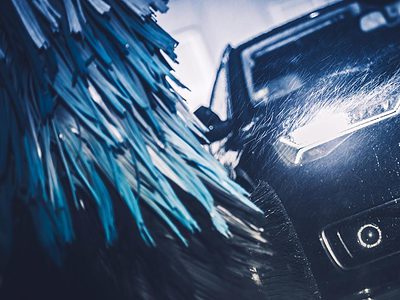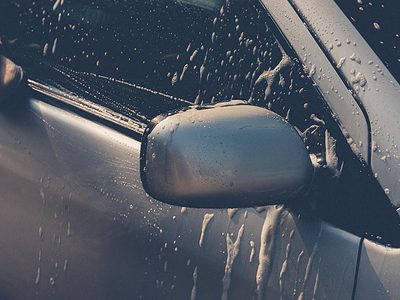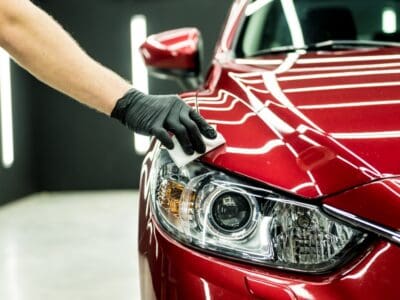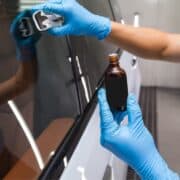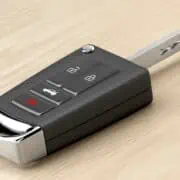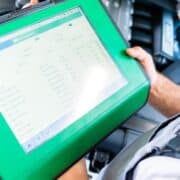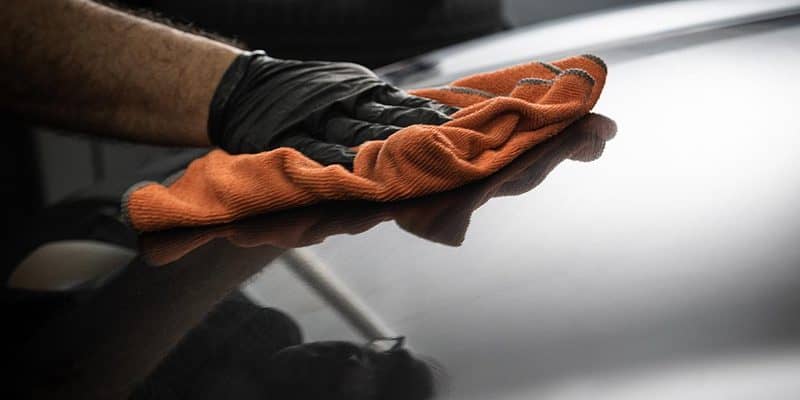
Everyone loves a shiny and spotless vehicle, and your new car will maintain its glossy appearance initially. However, it can quickly become riddled with spots and scratches due to poor maintenance, including not drying your car after washing. That’s because drying is an essential part of maintaining a scratch-free car.
So, how do I dry my car properly, you ask? This article will show you how to dry a car after washing—the correct way to carry out this overlooked yet crucial part of keeping your car neat.
Why Is It Important to Dry Your Car?
Drying your car is important because it prevents water spots from being a mainstay on the paintwork, glass, and trim.
In the short run, water spots can easily ruin the look of a freshly washed car. They make it dull from afar and dirty-looking up close. But water spots can also damage your car’s paintwork, becoming incredibly hard to remove in the long run.
How’s that?
The tap water we use in washing cars usually contains some dirt and minerals. If not wiped, the water will eventually evaporate, leaving these contaminants, which dry up and become baked into the car’s paint coat.
Note
It’s not the water that affects the looks of your newly washed car but the impurities it contains.
Materials for Drying a Car
You can dry a car with the following:
- Microfiber towel
- Car dryer
- Chamois
- Water blade
Microfiber Towel
This is the most common material for drying a car. It comes in different colors and sizes. For the best results, use one that’s large so you can cover more areas of your car. Lighter-colored options are also recommended so you can pick up stains easily.
Using a microfiber cloth is simple. Take the towel, wipe gently over your car surface, wring it when necessary, rinse and repeat until you are done.
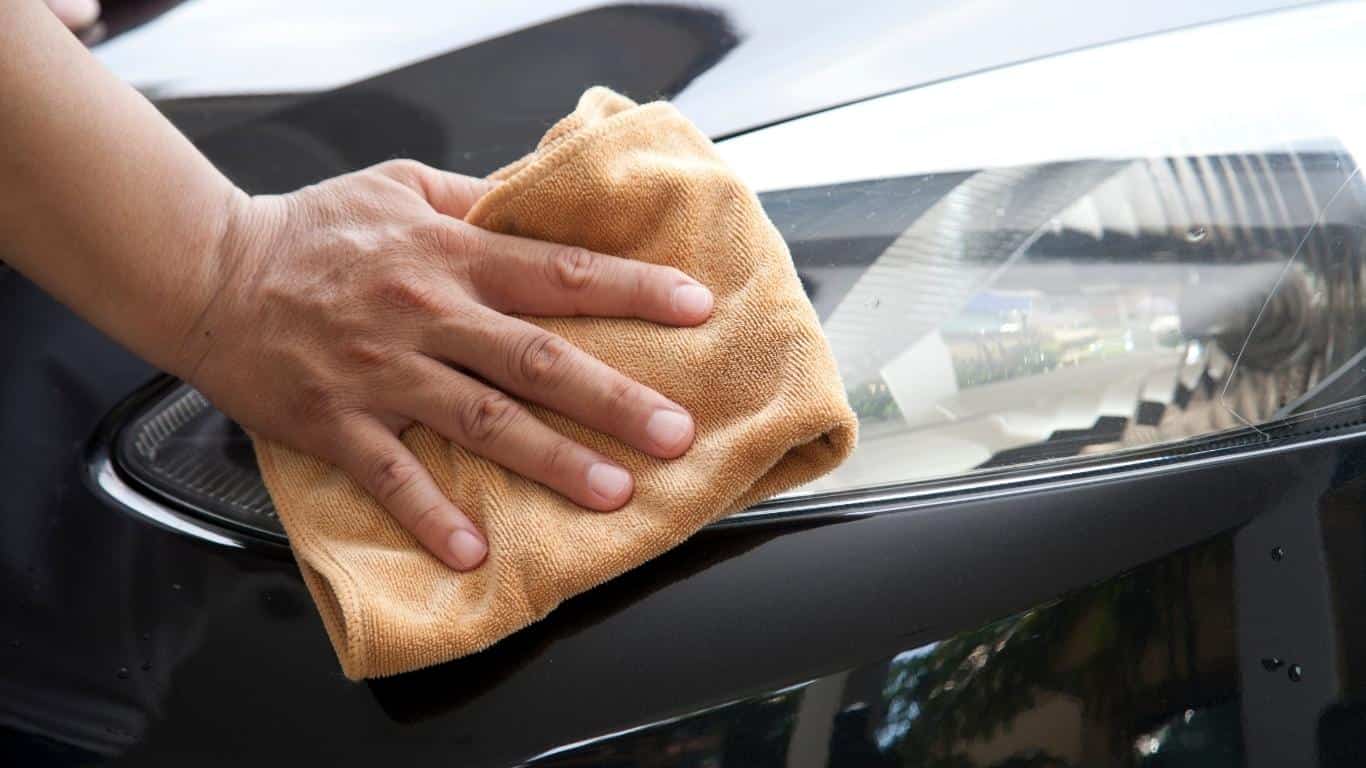
Car Dryer or Blower
A car dryer (also known as a car blower) is another good option when car drying. It’s a fast-action, electric corded tool that releases dry air to remove the excess water on a car. It is most helpful for drying creeks and crevices that would be more difficult to reach with a cloth. It also minimizes the risks of scratching your paint while drying.
Chamois Cloth
A chamois (also known as a shammy) is a rubber or leather super absorbent material used to dry off excess water on any surface. It is a very popular tool amongst car owners. Its use is similar to the microfiber towel—wipe, wring, repeat, but it’s not as soft or absorbent as microfiber.
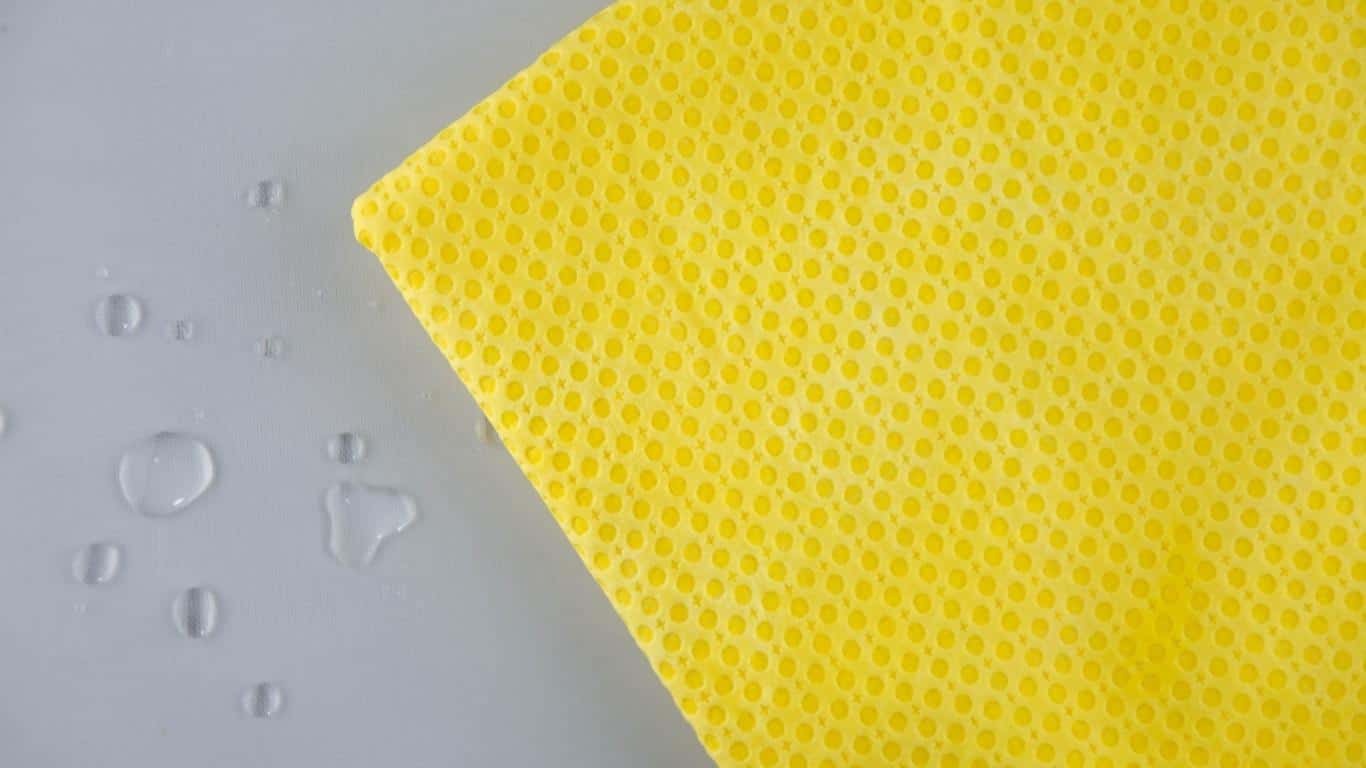
Water Blade
This equipment is easily the most effective yet but also the least recommended, and you’ll see why. A water blade functions like a windshield paper or squeegee and can dry cars faster than any other method. But it can also damage your paint because of the way it works. That said, you can reduce the risk by using silicone blades for more flexibility. To use a water blade, sweep it across your car surface up-and-down and back-and-forth.
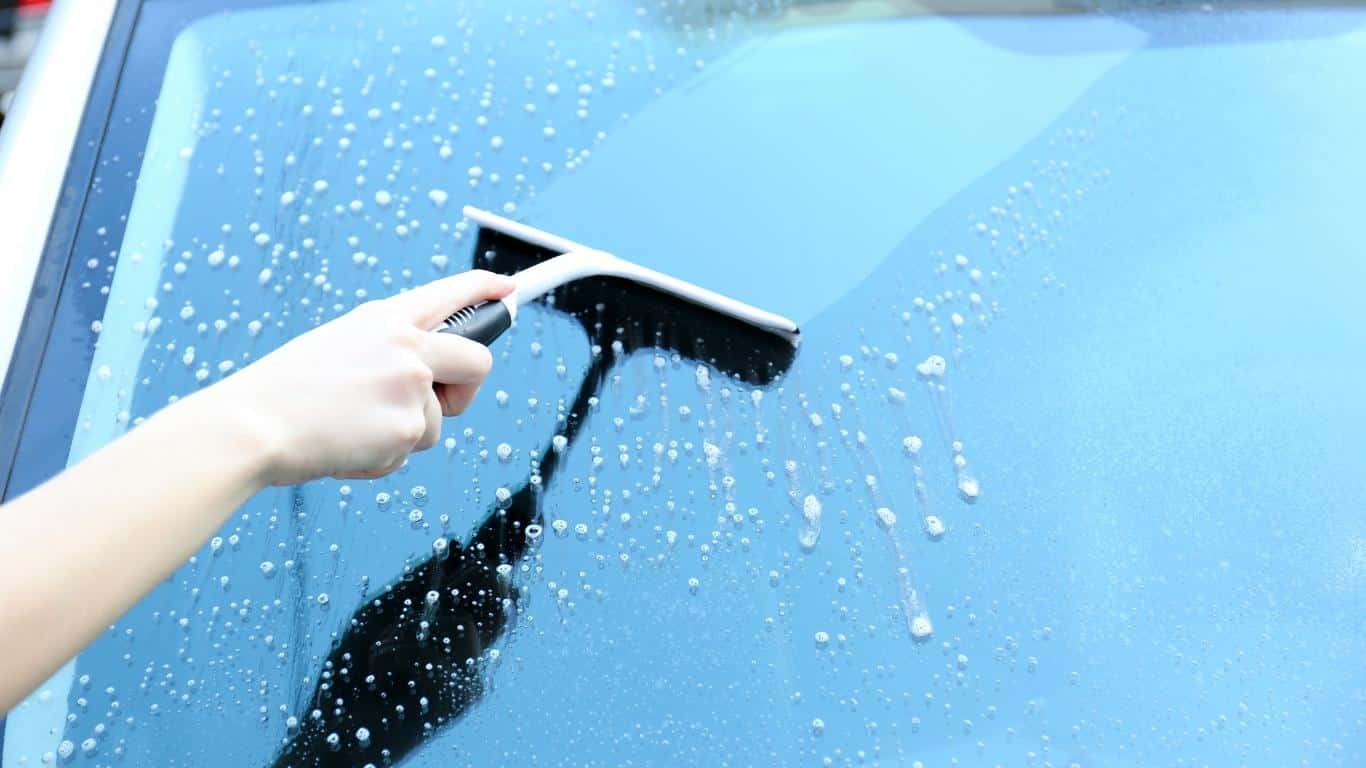
How to Dry a Car
There are some important things to note before proceeding to dry your car:
- Your car should be dried in a roomy place away from direct sunlight. This is because harsh exposure to the sun will leave water spots.
- Be sure to look out for water hiding in the creeks and crevices of your car.
These are the necessary steps involved in drying a car properly.
1. Get a Support
A good stand or support is necessary to reach all parts of your car, especially the topside. And this is even more important if you have an SUV.
2. Wipe Away Water From the Top
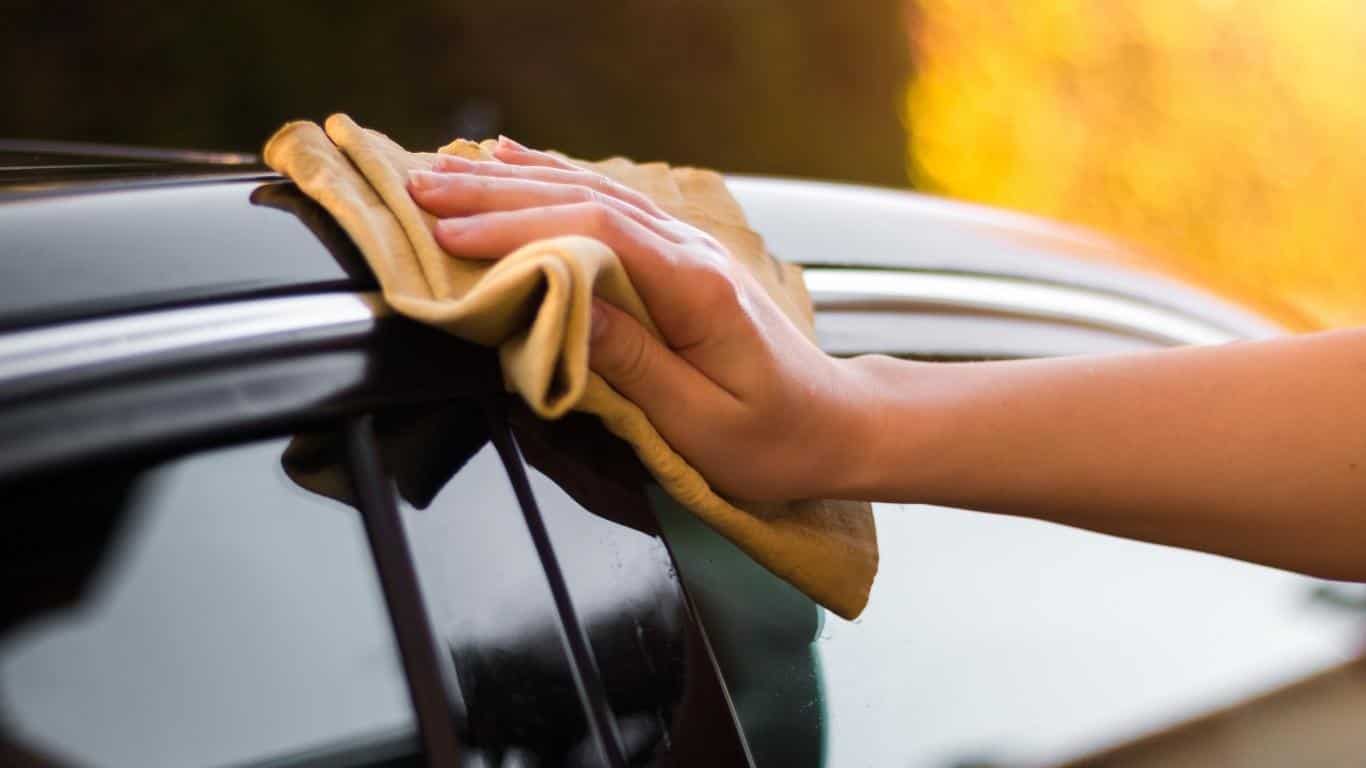
It’s time for the real work! Wipe water off the car with an appropriate drying material—microfibre towel, chamois, car dryer, etc. Start from the top, and work your way down uniformly and gently.
3. Wring Out the Drying Material

After using a drying material for a while, wring it out to remove the absorbed water. If you have multiple materials on ground, simply switch to a newer one for a faster process. Of course, this won’t be necessary if you’re using a car dryer.
Tip
Remember to wipe in one direction and regularly flip when using a towel to dry your car.
4. Move to the Next Highest Part and Repeat
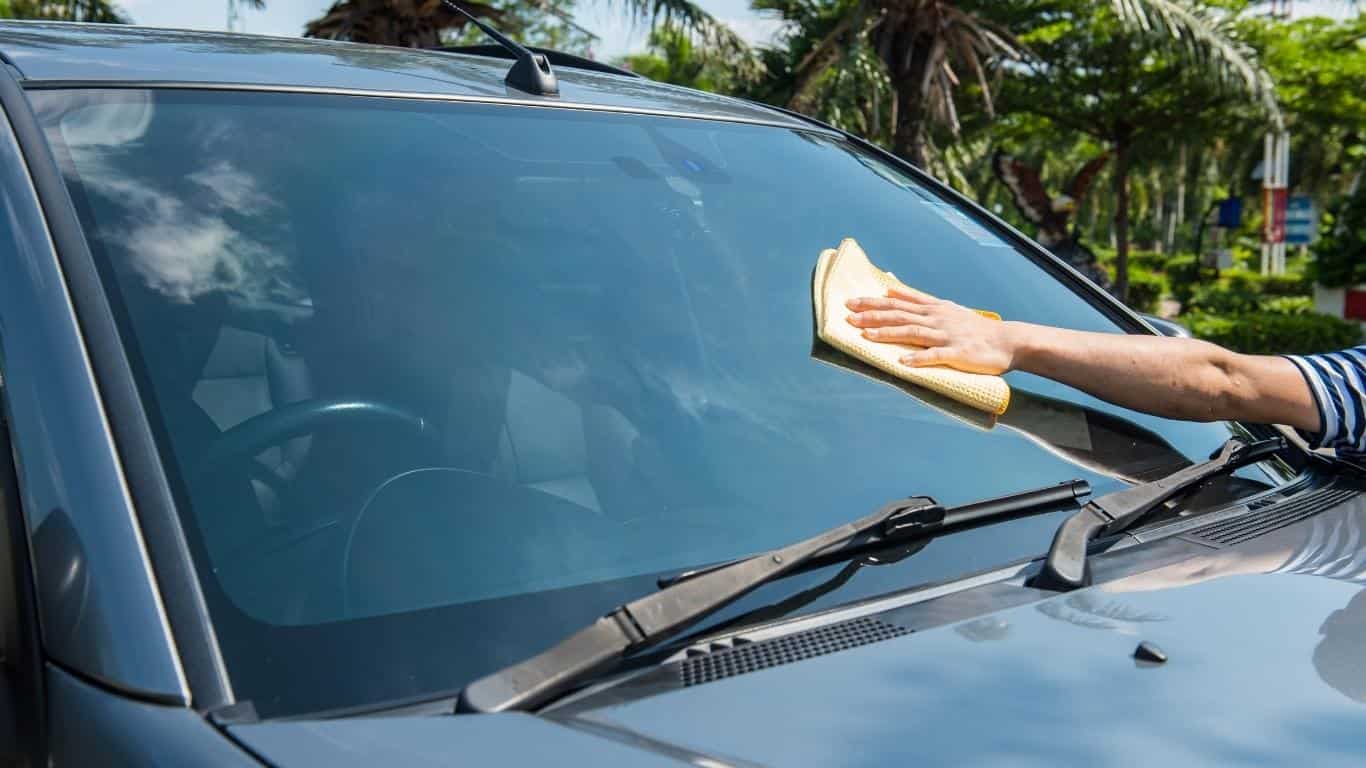
After completing the highest part (top) of the vehicle, move to the next highest part (usually the windshield and rear glass, followed by the hood and trunk) and repeat the process.
Give Your Car a Sparkling Shine
All aspects of the car cleaning process are important, including drying, especially if you want that blinding shine. Leaving out the drying process might save you some time but would undermine your efforts in the washing stage. So get a large towel and start drying your car more often.
FAQs
Can You Drive Your Car to Dry It Off?
Driving your car to dry it off is not much different from air drying it—it’ll work but will likely leave spots behind. The exception is if the car is coated with a hydrophobic sealant, wax, or ceramic, which causes the water particles to roll off like beads.
Should You Dry Your Car After It Rains?
If your car has a good sealant or wax, there’s no need to dry it after rain. Even if there’s no sealant, it’s better not to dry the car until it’s washed to avoid agitating any dirt on the surface and scratching the paint.
Can Microfiber Towels Scratch Your Car?
Microfiber towels are safe and won’t scratch your car’s paint unless there’s dirt in them. However, many come with a little white label made of cotton or polyester, which can scratch your paintwork.
Can I Dry My Car With a Shirt?
That’s a big no. Never use old clothes and rags to dry your car, as the fabric could scratch the paint. Not to mention that they could leave lint on the surface, ruining all the hard work you put into washing the car.
Should I Air Dry or Towel Dry My Car?
It’s better to towel dry your car whenever you can. While air drying is faster and requires less work, it could leave water spots behind, giving your car a slightly duller look.
Which Is Better: Chamois or Microfiber?
Chamois is quite absorbent and can be pretty soft. It’s also lint-free, so it won’t leave any streaks on your car’s surface. However, chamois is not as absorbent or as soft compared to microfiber.

